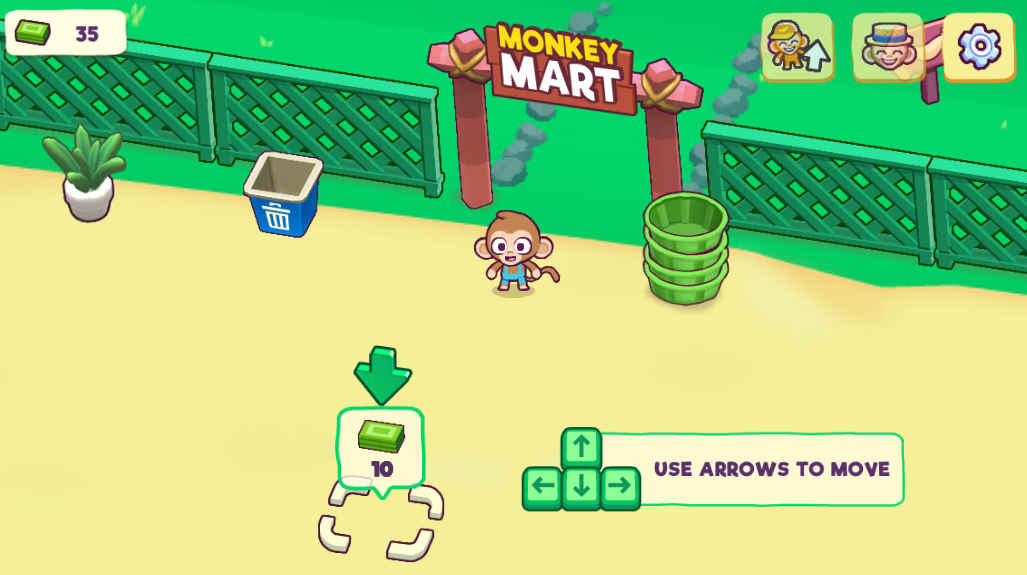This is a path finder and A* solver (astar or a-star) native extension for Defold Engine build on MicroPather.
You can use the A* extension in your own project by adding this project as a Defold library dependency.
Open your game.project file and in the dependencies field under project add:
https://github.com/selimanac/defold-astar/archive/master.zip
https://github.com/selimanac/defold-astar-examples
https://forum.defold.com/t/a-native-extension/
1.0.1
Small bug fixes. More details
1.0
initial
Initial setup
PARAMETERS
-
map_width(int) - Width of your map. This is generally width of your tilemap. -
map_height(int) - Height of your map. This is generally width of your tilemap. -
direction(enum) - Movement direction (astar.DIRECTION_FOUR or astar.DIRECTION_EIGHT)astar.DIRECTION_FOUR: On a square grid that allows 4 directions of movement using Manhattan distance
astar.DIRECTION_EIGHT: On a square grid that allows 8 directions of movement using Euclidean distance -
allocate(int) - How many states should be internally allocated at a time. This can be hard to get correct. The higher the value, the more memory Patfinder will use.- If you have a small map (a few thousand states?) it may make sense to pass in the maximum value. This will cache everything, and MicroPather will only need one main memory allocation. For a chess board, allocate would be set to 8x8 (64)
- If your map is large, something like 1/4 the number of possible states is good.
- If your state space is huge, use a multiple (5-10x) of the normal path. "Occasionally" call
astar.reset_cache()to free unused memory.
-
typical_adjacent(int) - Used to determine cache size. The typical number of adjacent states to a given state. (On a chessboard, 8.) Higher values use a little more memory. -
cache(bool) - Turn on path caching. Uses more memory (yet again) but at a huge speed advantage if you may call the pather with the same path or sub-path, which is common for pathing over maps in games.
EXAMPLE
local map_width = 5
local map_height = 5
local direction = astar.DIRECTION_EIGHT
local allocate = map_width * map_height
local typical_adjacent = 8
local cache = true
astar.setup(map_width, map_height, direction, allocate, typical_adjacent, cache)
Set your map data.
*Setting new map data reset the current cache.
PARAMETERS
world(table) - Your tilemap data. Keep it simple as much as you can.
EXAMPLE
local world = {
2 ,2 ,0 ,1 ,0,
0 ,0 ,1 ,2 ,1,
0 ,0 ,2 ,0 ,0,
0 ,2 ,2 ,2 ,2,
2 ,1 ,1 ,0 ,1
}
astar.set_map(world)
Set costs for your walkable tiles on your world table. This table keys determines the walkable area. In this example only numbered "2" tiles are walkable.
Table's sum must be the astar.DIRECTION_FOUR or astar.DIRECTION_EIGHT. In this example we want to move 8 direction.
*Setting new cost data reset the current cache.
EXAMPLE
local costs = {
[2] = {
1.0, -- E
1.0, -- N
1.0, -- W
1.0, -- S
1.41, -- NE
1.41, -- NW
1.41, -- SW
1.41 -- SE
}
}
astar.set_costs(costs)
Solves the path.
PARAMETERS
X, Y of the tile possition on array not the screen position.
start_x(int) - Start tile Xstart_y(int) - Start tile Yend_x(int) - End tile Xend_y(int) - End tile Y
RETURN
-
result(enum) -astar.SOLVED: Path solved
astar.NO_SOLUTION: Can't find the path
astar.START_END_SAME: Start and End is the same -
size(int) - Size of the path. -
total_cost(int) - Total cost of the path -
path(table) - Table with x and y coordinates. First value is the given start point.
EXAMPLE
local start_x = 1
local start_y = 1
local end_x = 3
local end_y = 3
local result, size, total_cost, path = astar.solve(start_x, start_y, end_x, end_y)
if result == astar.SOLVED then
print("SOLVED")
for i, v in ipairs(path) do
print("Tile: ", v.x .. "-" .. v.y)
end
elseif result == astar.NO_SOLUTION then
print("NO_SOLUTION")
elseif result == astar.START_END_SAME then
print("START_END_SAME")
end
Finds the neighbours according to given cost.
PARAMETERS
start_x(int) - Start tile Xstart_y(int) - Start tile Ymax_cost(int) - Maximun cost for finding neighbours
RETURN
-
near_result(enum) -astar.SOLVED: Path solved
astar.NO_SOLUTION: Can't find the path
astar.START_END_SAME: Start and End is the same -
near_size(enum) - Size of the found neighbours. -
nears(enum) - Table with x and y coordinates. First value is the given start point.
EXAMPLE
local start_x = 1
local start_y = 1
local max_cost = 3.0 -- near
local near_result, near_size, nears = astar.solve_near(start_x, start_y, max_cost)
if near_result == astar.SOLVED then
print("SOLVED")
for i, v in ipairs(nears) do
print("Tile: ", v.x .. "-" .. v.y)
end
elseif near_result == astar.NO_SOLUTION then
print("NO_SOLUTION")
elseif near_result == astar.START_END_SAME then
print("START_END_SAME")
end
If your state space is huge, occasionally call astar.reset_cache() to free unused memory.
Returns the value from the map array by coordinates.
PARAMETERS
X, Y of the tile possition on array not the screen position.
x(int) - Tile Xy(int) - Tile Y
RETURN
value(int)
EXAMPLE
local value = astar.get_at(1, 1)
if value > 0 then
print("boo")
end
Set your value to the map array by coordinates. *Setting new data reset the current cache.
PARAMETERS
X, Y of the tile possition on array not the screen position.
x(int) - Tile Xy(int) - Tile Yvalue(int)
EXAMPLE
astar.set_at(1, 1, 0)
Developer: Tiny Dobbins
Release Date: 8 Dec, 2022
Poki: https://poki.com/en/g/monkey-mart

